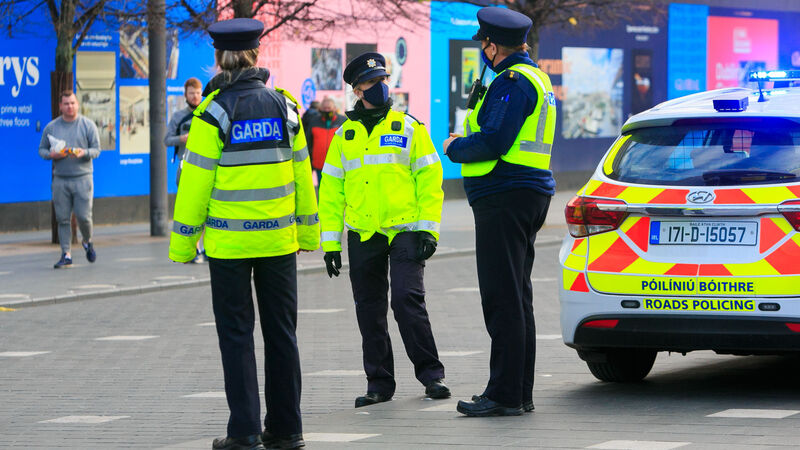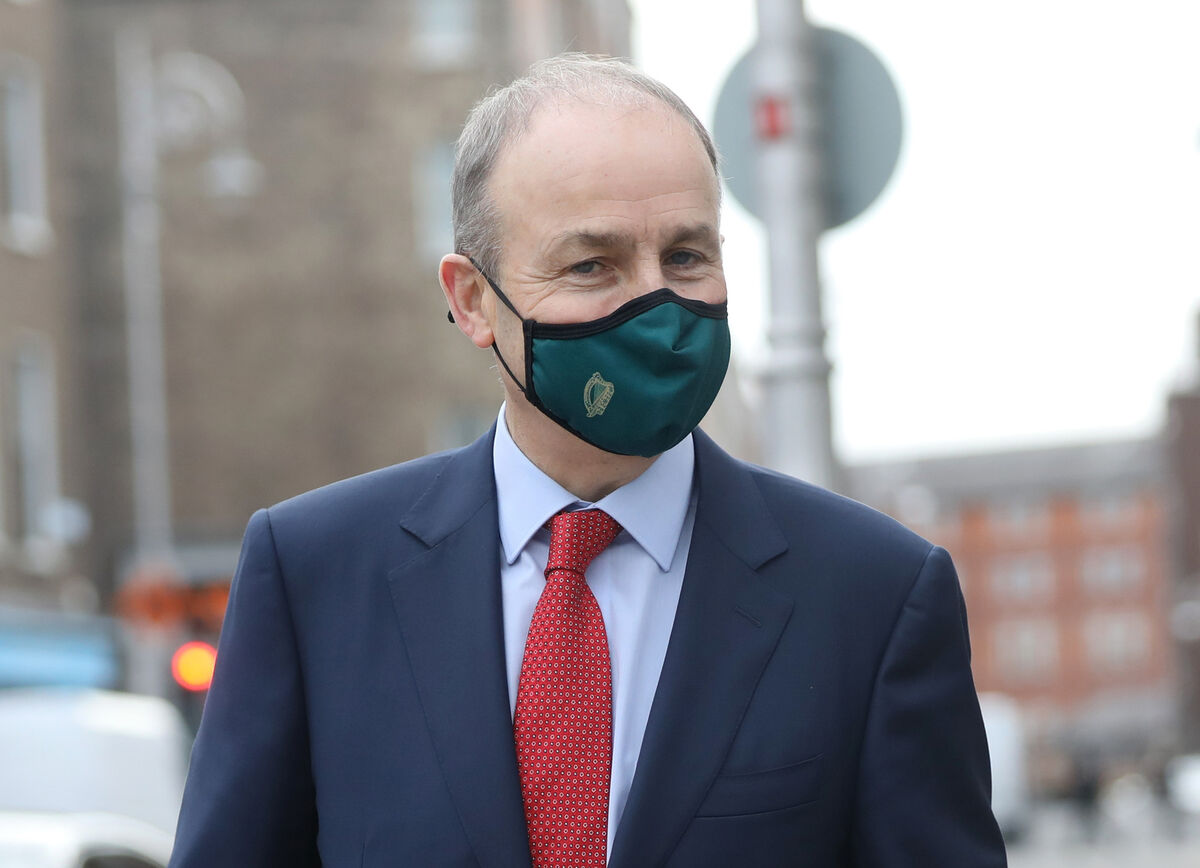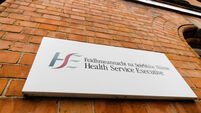Covid-19: '150 deaths a month' if Ireland had stayed at Level 3

Members of the Gardaí at a checkpoint on O'Connell Street in Dublin's city centre.
A leading member of the National Public Health Emergency Team (Nphet) has said there would have been more deaths if Ireland had stayed at Level 3.
The country moved from Level 3 to Level 5 restrictions on Wednesday, October 21.
Cases of Covid-19 had been rising to around 1,000 a day prior to the move to Level 5.
Professor Philip Nolan, the chair of Nphet’s modelling advisory group, has said that if the country had remained at Level 3, it would have resulted “in at least 1200 hospitalisations and 150 deaths a month”.
Yesterday, 482 cases of the virus were confirmed with seven further deaths.
Prof Nolan had earlier said that Ireland could have fewer than 100 cases a day by December 1 - when the Level 5 restrictions are due to end - “if we keep it up”.
He said “we are in a very different position now” and added that “when we started this phase of our Covid-19 response three weeks ago, we could not be certain that we, collectively, would get where we are today”.
He said that prior to Level 5, Ireland was “probably 2-3 weeks away from our health system being overwhelmed”.
It comes as the number of people being treated in hospital for Covid-19 has dropped by more than a quarter since the end of last month.
254 people are receiving treatment, down from 354 two and a half weeks ago, while 32 people are in ICUs.
HSE chief Paul Reid described the news as “encouraging”.
He said: “Let's hope this is the start of a trend so that these patients can get home for Christmas with their families.
“We can all help to stop more admissions”.
Meanwhile, Taoiseach Micheál Martin has said gardaí will not be calling to people's doors over the Christmas period, raising the hope that families can gather for a traditional festive celebration.
"I do get that people will want to meet with family," Mr Martin said, but added that people will "not be on the lash for Christmas" and ruled out Christmas work parties.
It comes as seven more Covid-19-related deaths and 482 new cases of the virus were confirmed by the Department of Health.
Dr Tony Holohan, the chief medical officer, said the sudden spike in case numbers of Covid-19 reported last night was "an important reminder of the unpredictable nature of this highly infectious disease".
With the focus now shifting to Christmas, Mr Martin said an "exit plan is being worked on across Government" and indicated that this could include an initial move to level 3 restrictions with a further easing of measures ahead of the holidays.
The Government has already moved to play down expectations that Irish people living abroad will be able to return and suggested pubs that don't serve food may not reopen.
Under level 5 restrictions, gardaí were given the authority to call to homes to clamp down on house parties, which have been the source of a number of Covid clusters.
Mr Martin said these powers would not be enacted as people come together to celebrate Christmas.
Asked about the possibility of gardaí calling at doors on Christmas Eve, Mr Martin said: "That's not going to happen, that will not happen, we are all on trust here, both as individuals and collectively."
A spokesperson for Mr Martin later confirmed it was "never intended" that the powers would be used to stop family members visiting each other, but rather were introduced to tackle house parties and large gatherings.
Mr Martin also said he expects churches will be open for religious services throughout Christmas week.

Welcoming those comments, Archbishop of Dublin Diarmuid Martin suggested extra Masses could be added over the busy Christmas week.
However, he said this would pose difficulties as churches would have to be sanitised between services.
"Our aim is to ensure that people can celebrate Christmas safely and we are putting a huge amount of effort into preparing our churches in such a way that they can be places where people can safely come to worship," Dr Martin said.
Mr Martin said the Government will announce a clear plan before the end of the month, to give businesses and the public time to prepare.
"I think we've learned a bit from level 2, as it operated from the summer onwards. I think we've learned what worked and what didn't work," he said.
"And I think that will inform people's behaviour leading into Christmas. I get the sense from the public they know what will be different."
Meanwhile, University Hospital Limerick Group is to roll out mass testing of around 3,000 staff after a number of outbreaks at the hospital group.
Some 188 staff are off work and self-isolating having either tested positive for Covid-19 or been designated as close contacts, as of last evening.
Professor Brian Lenehan, chief clinical director of UL Hospitals Group, confirmed the mass testing.
He said: “Currently, testing is adequate, and we have adequate contact tracing here in the Mid-west and, in fact, from today we will be rolling out mass swabbing for all healthcare workers within the hospital group as a precautionary measure, for a number of reasons.
"To identify other healthcare workers potentially, who are asymptomatic and carrying the virus, and indeed to reassure staff that they don't have Covid-19 when they get a ‘not detected’ results,” said Prof Lenehan.





